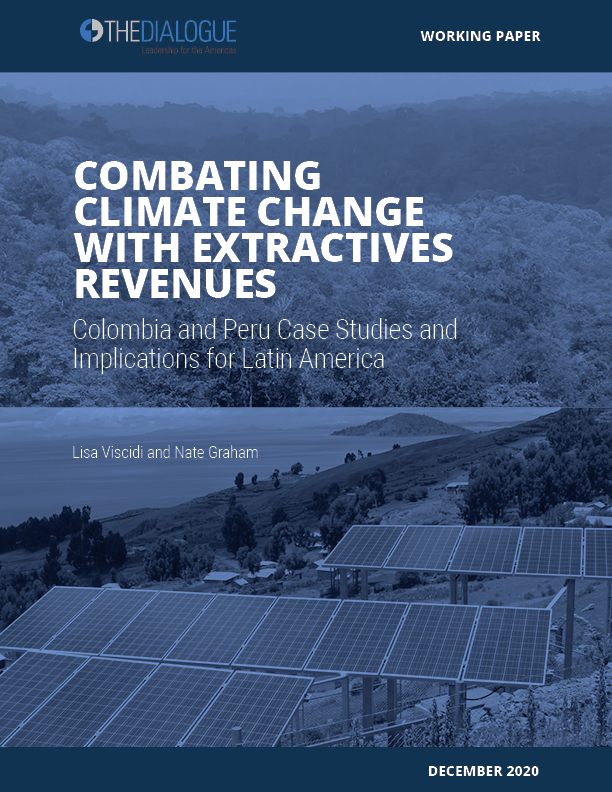Bolivia & the Global Fight Against Climate Change
In the past year, the Bolivian government has emerged as an outspoken critic of climate change policies.
This post is also available in: Español
As economies seek to rebuild in the aftermath of the Covid-19 crisis, there is an opportunity to accelerate climate change mitigation and adaptation and shape more sustainable economic models. Revenues from the extractive industries can provide crucial resources in this effort, according to a new report by the Inter-American Dialogue.
Latin America is one of the world’s richest regions in natural resources, and the oil and mining sectors contribute a significant share of fiscal revenues in many of the region’s economies. But these industries are confronting major longer-term shifts in their operations and will likely face declining demand for their emissions-generating products as a result of efforts to combat climate change. The production of fossil fuels, minerals, and metals also directly generates significant emissions. Leveraging oil and mining funds in the fight against climate change could offset the negative environmental impacts of these industries in the short term and support countries’ efforts to diversify away from fossil fuels for energy consumption in the longer term.
This report examines the cases of Colombia and Peru, two resource-rich nations that distribute revenues from extractive industries to subnational governments, and the broader implications for Latin America.

In the past year, the Bolivian government has emerged as an outspoken critic of climate change policies.
As global temperatures continue to rise with the global community stalled on any way to stop them, countries must prepare to adapt to increasingly volatile environmental conditions.
Colombia is in the midst of a mining boom. The challenge for President Santos is to capitalize on the sector’s promise.
